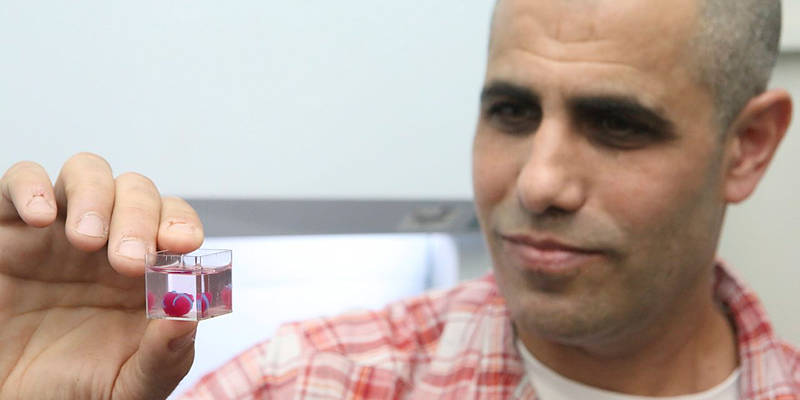Project leader at Tel Aviv University hopes that within 10 years, organ printers at leading hospitals worldwide will conduct the process on a routine basis.
By United With Israel Staff
Tel Aviv University (TAU) has announced that a team of its scientists has printed the first 3D heart, using the patient’s own cells.
For the first time, the university said, Israeli scientists have created a vascularized human heart that fully matches the properties of a human patient.
“This is the first time anyone anywhere has successfully engineered and printed an entire heart replete with cells, blood vessels, ventricles, and chambers,” said Prof. Tal Dvir of TAU’s School of Molecular Cell Biology and Biotechnology, Department of Materials Science and Engineering, Center for Nanoscience and Nanotechnology, and Sagol Center for Regenerative Biotechnology, who led the research for the study.
“People have managed to 3D-print the structure of a heart in the past, but not with cells or with blood vessels,” he said.
The staggering development prompted Israel’s Foreign Ministry to react, citing it as yet another exceptional example of Israeli innovation. “This is a major breakthrough and great news for world medicine,” said ministry spokesman Emmanuel Nahshon on Twitter.
The findings are published in the Advanced Science journal.
“Blood vessel architecture is further improved by mathematical modeling of oxygen transfer,” reports the journal. “These results demonstrate the potential of the approach for engineering personalized tissues and organs.”
The next step, say the TAU researchers, is to teach the hearts to behave like human hearts, with a process of implanting them into animals and ultimately into humans.
Prof. Dvir voices the hope that within 10 years, there will be “organ printers” in top hospitals worldwide where these procedures will be conducted on a routine basis.
